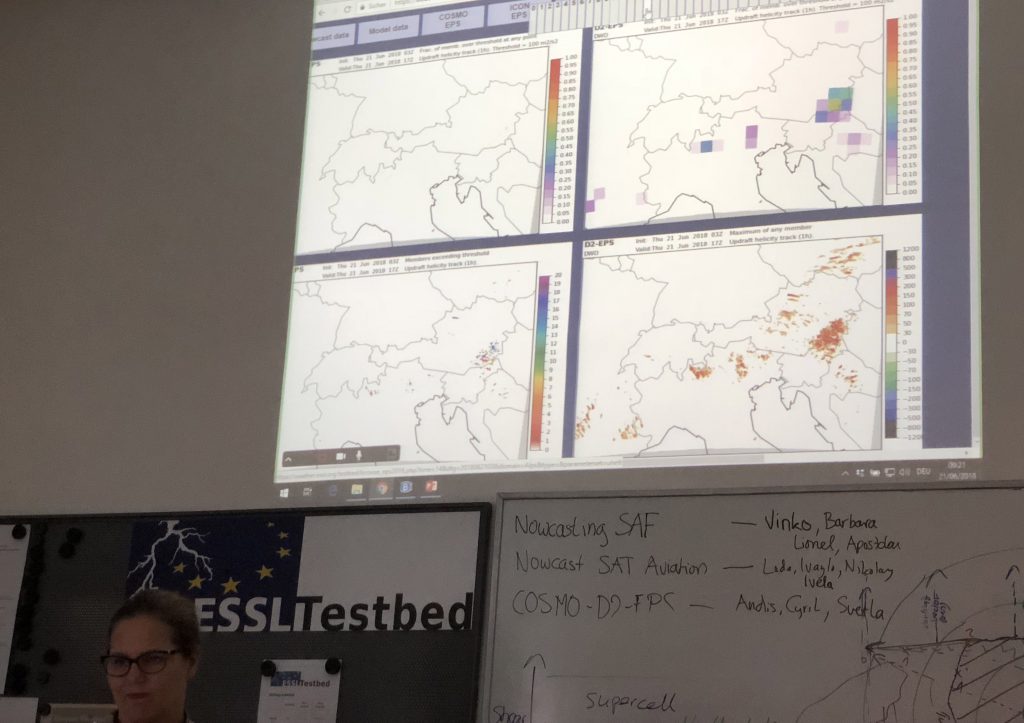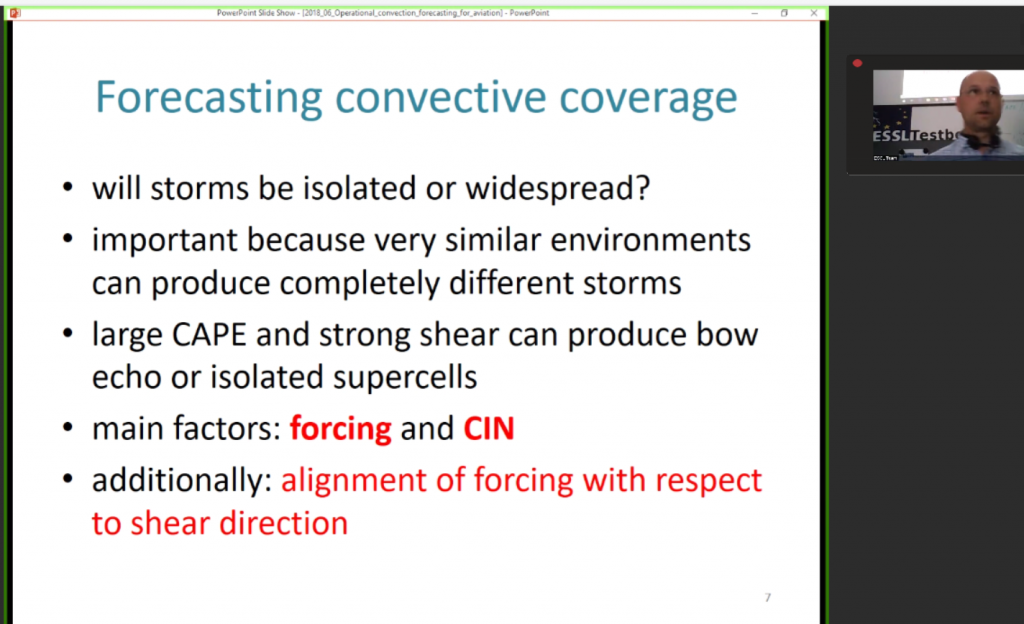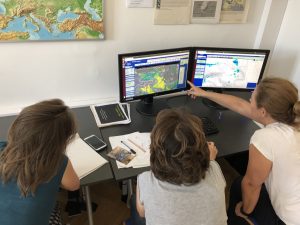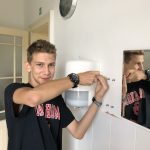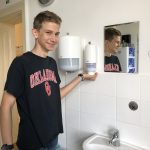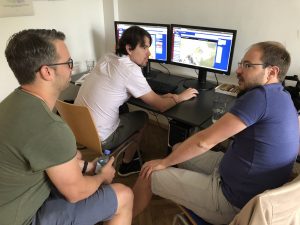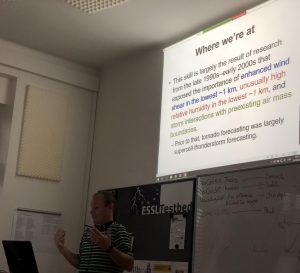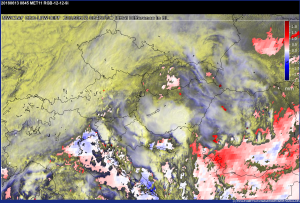This week the ESSL Testbed takes a break. We will continue on 2 July.
Author Archives: Alois Holzer
COSMO-D2-EPS Evaluation
Here at the ESSL Testbed participants closely looked into the COSMO-D2-EPS products yesterday. It was found today that indeed at the forecast time the most intense storms occured over southeastern Austria yesterday with a number of hail reports where updraft helicity tracks were forecast to be most probable.
Interesting presentation on operational convection forecasting in aviation
Yesterday Vinko Šoljan from CroControl provided an interesting overview on aviation-related matters in the field of convection forecasting. His presentation PDF and also the live recording of his presentation can be found on the “Testbed Info Page” and is accessible for all registered participants.
This is the link to the BlueJeans online briefings and presentations (Tue-Fri 9 UTC) from the ESSL Testbed: https://bluejeans.com/720241930
There is also a “BlueJeans” app for your smartphone or tablet. Try it out! The live BlueJeans broadcasts are publicly open for everyone.
Today Michou Baart de la Faille will present a wrapup of basic conceptional models after the day 1 and day 2 forecast briefings. See you at 9 UTC!
Time to closer look into local details that matter
This week the synoptic setup is not supportive for large outbreaks of severe convective weather. But on a very local scale nevertheless severe events can happen. This Testbed week therefore triggers many fruitful discussions about local effects like orographically enhanced lift, the influence of seabreeze fronts or the cell-relative motion of mesoscale boundaries and flows. And at the end these effects are important for a successful forecast of local severe convective storms.
Strong female participation this week
2nd week already
At the ESSL Testbed the second week has started already.
This week the 15 year old Gregor Dotzek from Bavaria stays at the ESSL Testbed for a one-week internship that is required by his school in Germany. He is mainly helping our ESWD quality manager Thilo Kühne with preparing statistics based on ESWD data.
But sometimes also small hands-on repair works need to be done at the ESSL Research and Training Centre in Wiener Neustadt. In this case a new liquid soap dispenser is being mounted by Gregor. Well done!
It’s a group effort
Discriminating between tornadic and non-tornadic supercells
Today Prof. Paul Markowski presented an overview about the current knowledge of forecasting strong tornadoes that are connected with supercells, and how to discriminate from non-tornadic supercells.
Markowski is one of the most profound experts in the field and Nikolai Dotzek Awardee 2011.
Satellite discussion and WMO visit
During today’s severe weather briefing the NWC SAF precipitable water (PW) difference-to-model product was discussed. It showed significantly higher values of PW for the lowest layer compared to the ECMWF model background. Such higher than expected amounts of boundary layer moisture potentially have a strong impact on severe storm developments.
Two WMO officials visited the ESSL Testbed today:
Milan Dacić, chief of WMO Regional Office for Europe, and Sari Lappi, World Meteorological Organization project coordinator.
ESSL Testbed 2018 started
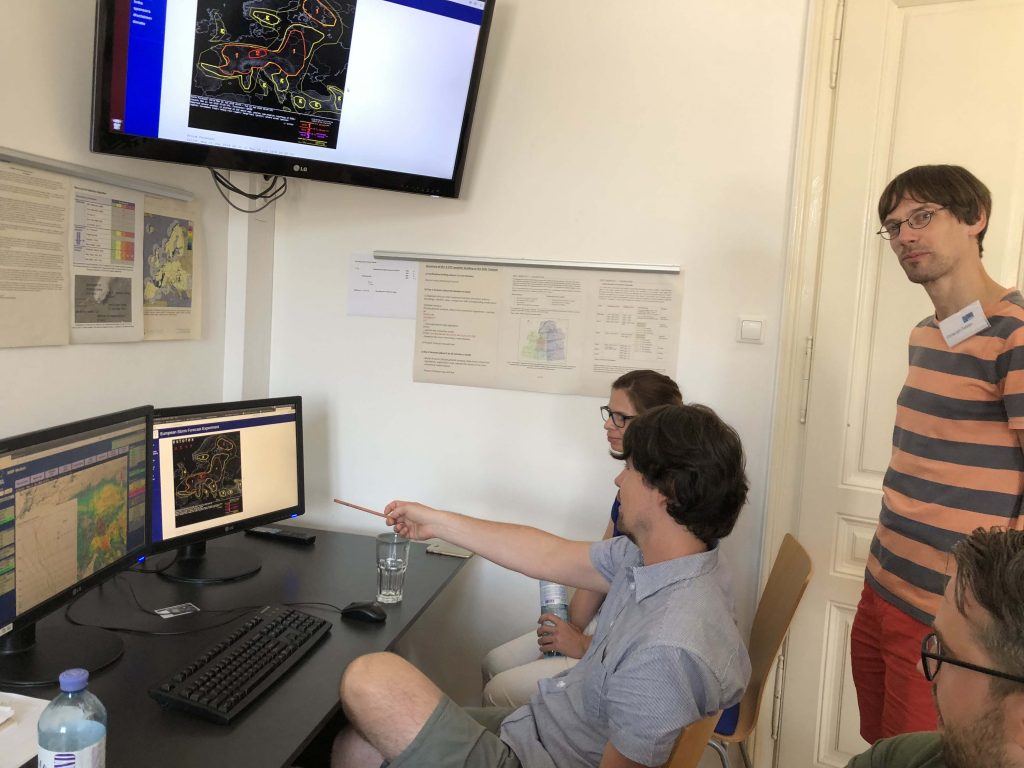
Testbed activities started today with participants being introduced to the different new products. This year new:
- Focus on two EUMETSAT NWC-SAF products: Difference fields of low-/ and mid-level precipitable water retrievals and Cloud Top Height product
- NowCastSAT-Aviation from DWD
- NowcastMIX – Tracks from DWD
- New configurations of convection permitting model systems: COSMO-D2 and COSMO-D2-EPS
Persons interested in our Tue-Fri 9 UTC weather briefings are invited to follow us via BlueJeans:
https://bluejeans.com/720241930

